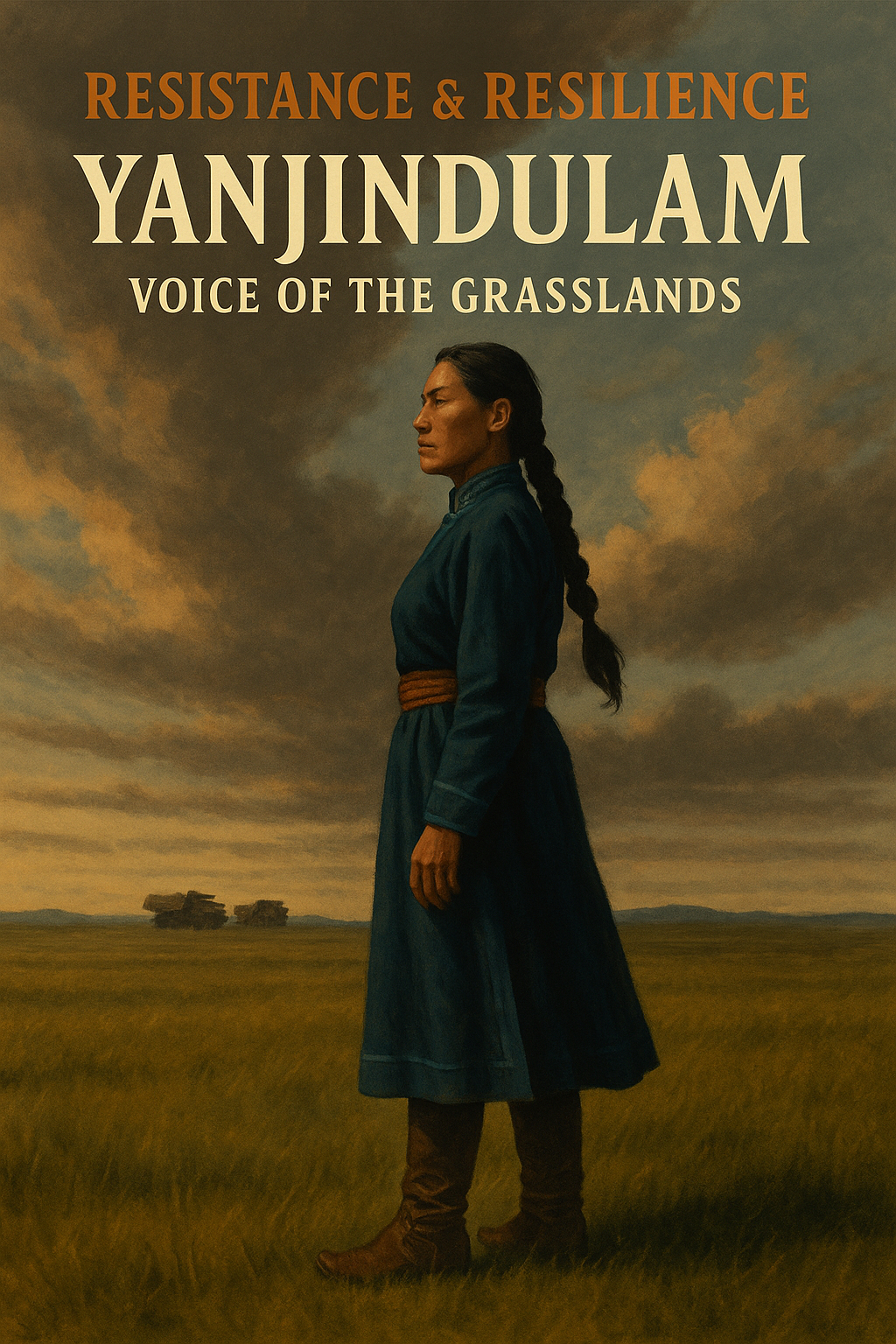
Throughout Mongolian history, women have not waited for permission to lead. From Queen Mandukhai the Wise, who united the Mongolian tribes and defended the steppe in the 15th century, to the countless unnamed herder women who have kept their families and traditions alive through war and colonisation, Mongolian female leaders have always stood at the heart of resistance. Southern Mongolia is no different. Here, too, women have long fought to protect the land, the language, and the dignity of their people.
Among them is Yanjindulam, also known as Yangjindolma — a herder, mother, and activist from Xilingol — who today embodies that same legacy of defiance. Her story is a testament to the strength of Southern Mongolian female activists: women who lead not quietly behind men, but in their own right, out front, shaping the struggle for justice.
Growing up on the open grasslands of Xilingol, Yanjindulam learned early the deep connection between the land and her people. The grasslands are not just a place to live; they are the heart of Mongolian identity, a way of life passed down through generations. That way of life came under attack when Chinese authorities began pushing herders off their land, claiming it was for “ecological protection” while turning pastures over to mining companies. For Yanjindulam, it was clear these policies were about control and erasure — not conservation.
The killing of Mergen, a herder who stood in front of a coal truck to protest illegal mining in 2011, was a turning point. In the protests that followed, Yanjindulam emerged as a leader. She helped organize memorials for Mergen, rallied herders to speak out, and became a public voice against forced evictions, grazing bans, poisoned pastures, and the slow destruction of Southern Mongolian culture.
Her activism made her a target. In 2017, just before she was set to lead a “Protect the Grasslands Day” demonstration, police detained her. Over 15 days in detention, she was tortured, shackled for hours at a time to what is known as a tiger bench. Even then, she refused to sign a confession or back down. Later, in 2020, she was sentenced to prison again for continuing to resist. Though eventually released, she remains under strict surveillance, her movements and speech monitored. Still, she refuses to be silenced.
Yanjindulam’s story challenges the assumption that female activists are merely supporting others. She has shown what Southern Mongolian women have always shown: that they lead because they see the struggle for land and culture as their duty. She leads as a mother, as a herder, and as someone unwilling to watch her people’s way of life be erased.
Her courage is a reminder that the spirit of the grasslands lives on in the women who refuse to surrender to repression. As long as activists like Yanjindulam keep speaking, organizing, and resisting, there is still hope that the land, language, and dignity of Southern Mongolia can be saved.
We honor her, and all the Southern Mongolian female activists, whose leadership continues to inspire a movement that will not die.